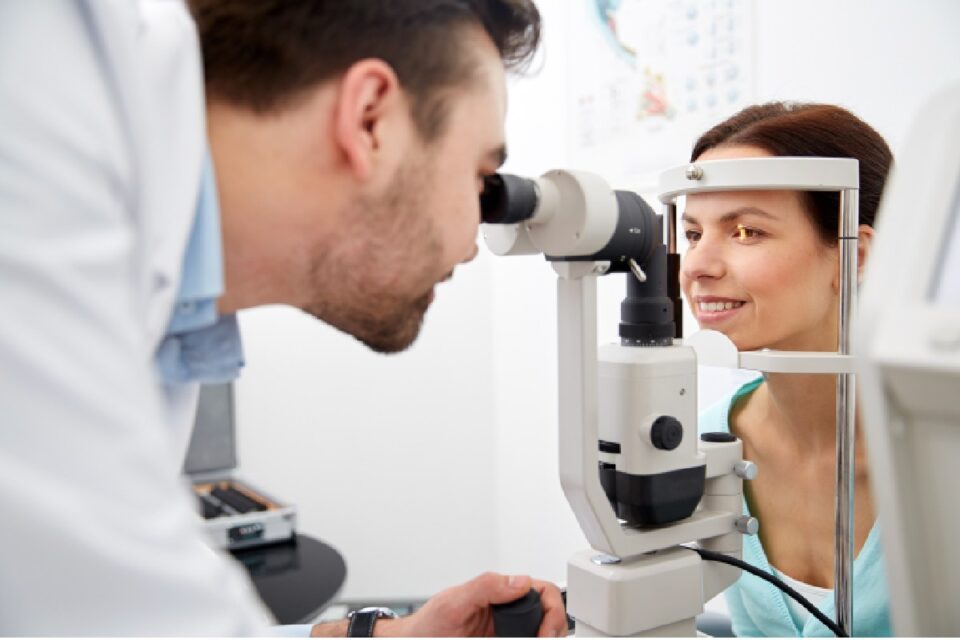Whenever you have a problem with your eyes, you need to book an appointment with an eye care professional. However, just like any other medical profession, eye care professionals have different fields and expertise. Before you book an appointment with an eye professional, make sure that he or she is really the kind of specialist that you need to see.
There are three different types of eye care specialists who can help keep your eyes healthy. The expertise and training of each specialist varies, and so does the kind and level of eye care and assistance they can provide. This article explores the different types of eye care professionals, and the kind of conditions and problems that their services can help you with.
Table of Contents
 Ophthalmologists
Ophthalmologists
This is the highest kind of specialist when it comes to eye care. Ophthalmologists are basically doctors who specialize in eye treatment and surgery. These eye care professionals need to undergo at least eight years of training in medical school, acquire a medical license, and be authorized to perform surgery.
Ophthalmologists provide a wide range of eye treatment services. They are capable of diagnosing and treating a wide range of eye conditions and perform eye surgeries on patients. They also prescribe and fit medical-grade contact lenses or eyeglasses, and even research causes and cure for vision problems and eye conditions.
There are instances when an ophthalmologist detects other health problems that aren’t necessarily linked to the eyes. In the event that this happens, they can refer the patient to a family doctor or medical specialist who can help with the condition.
By and large, ophthalmologists treat eye conditions with optical, medical and surgical techniques. They usually specialize in specific eye problems like glaucoma, plastic surgery, pediatric eye care, cornea, vitreous and retina disease.
Optometrists
These eye specialists are trained to offer primary eye care services. They conduct a broad range of services that also includes diagnosis, treatment, and management of vision changes. Optometrists train for four years in the school of optometry, but unlike ophthalmologists, they don’t have to go to medical school. However, they are considered front liners in the field of eye care because they are capable of conducting vision tests, eye examinations, and can even give a primary diagnosis.
They can also prescribe and dispense corrective lenses, prescribe medication for common eye conditions, detect eye irregularities, and offer visual rehabilitation. But despite that, an optometrist can only prescribe a limited range of drugs. These generally include hydromorphone, hydrocodone, and oxycodone.
Compared to ophthalmologists, optometrists are more accessible. They can be found in most health care facilities, including hospitals and private eye clinics like Mott Optical – Lens Center. Common eye conditions can be checked and treated by an optometrist. For example, if you just started getting blurry vision; you can have your eyes checked by an optometrist first because you may just need corrective glasses. If they see that your eyes need a higher degree of medical care; that’s only when they will refer you to an ophthalmologist.
Opticians
Opticians are technicians who are trained to design and fit different kinds of visual aids such as contact lenses, and eyeglass frames that can help correct a patient’s eyesight. They are also known as eyewear specialists.
However, opticians cannot do everything by themselves. While they can provide corrective lenses and frames, they are not trained to diagnose eye problems or prescribe medications on their own.
Opticians rely on the prescription given by ophthalmologists or optometrists so they can create an appropriate visual aid for the patient. Most of the time, you can see opticians working side by side an optometrist or ophthalmologist in a clinic.
Conclusion
Eye care and assistance also requires the knowledge and expertise of licensed professionals. After all, our eyes are an essential part of our body, and these require delicate care. Ophthalmologists, optometrists, and opticians are the three eye care professionals that you need to see for any eye-related condition.
Ophthalmologists provide medical treatment for more specific eye conditions such as cataract and glaucoma. They can also perform complicated eye surgeries. Optometrists, on the other hand, are the ones who can help with common vision problems and routine eye check-ups. Lastly, opticians are the ones who can adjust and design contact lenses or eye frames for every patient.
Other Helpful Resources:

